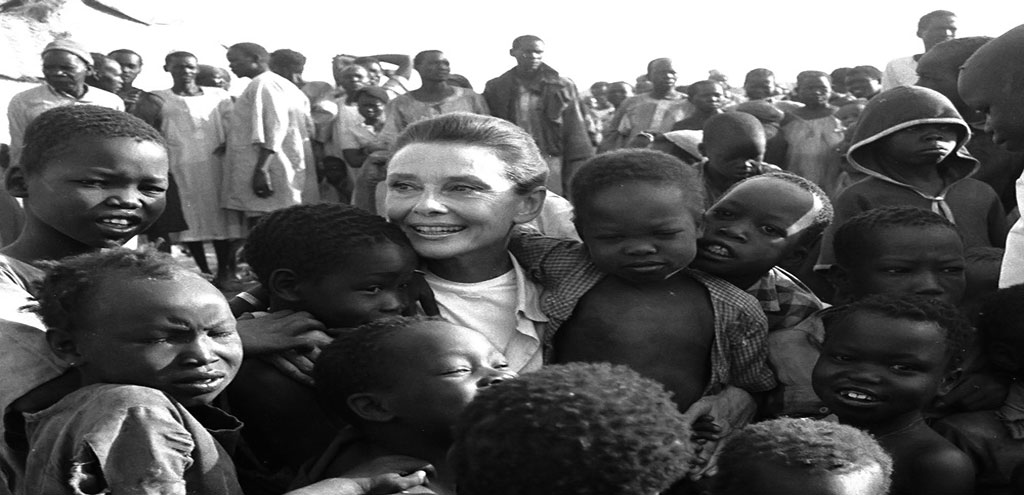BY: Chelsea Bassett
Twenty-five years ago this world lost a beloved icon and true cinematic legend, Audrey Hepburn. However, Hepburn was much more than a beautiful face with a successful acting career. Very few know about the other side to Audrey Hepburn, the side that was just as true as you and me. Hepburn was a kind and truly sincere soul that was actually a huge humanitarian. She often spoke about how we should love others and be kind to everyone in her interviews. One of her most famous quotes was, “People, even more than things, have to be restored, renewed, revived, reclaimed, and redeemed; never throw out anyone.” So, to celebrate her on this twenty-fifth year of her passing, I believe we should learn not from her successful business career, but rather her humble life lived off camera. I believed she would have preferred it that way actually.
Hepburn did not have the easiest childhood. Her father deserted her and her mother when Hepburn was only eight years old, and according to brightside.me, she suffered from neurotic depression ever since she was a child. However, Hepburn still managed to become a sincere, caring, and selfless person in her adulthood. She never let the abandonment of her father become a bitter root in her life, but instead choose to love others around her even more because she understood the pain of rejection. Another one of her most famous quotes was, “I was born with an enormous need for affection, and a terrible need to give it.”
Hepburn also believed in standing for something that you believe in, even with those you care most don’t agree with you or when it could cost you everything. According to biography.com Hepburn and her mother moved to Holland during World War II believing that they would be safe since the country had pledged to remain neutral during the war. However, the Nazis invaded anyway leaving Hepburn and her mother along with millions of others starving after they cut off the country’s food supplies. While Hepburn’s parents were secretly rooting for the Nazis because of their involvement with the British Union of Fascists, Hepburn was working with the Resistance because she did not support her parents’ racist form of ideology.
According to legend, she would perform in ballet recitals and then donate the money she earned towards efforts to help the Resistance. While helping with the Resistance, she also delivered papers and money from one group of resistance workers to another. Hepburn’s activism even carried into the later half of her life when she started serving as Special Ambassador to UNICEF from 1988 until her death in 1993. Hepburn believed that the world could be a better place if people would take the time to help and love others. She often said, “Remember, if you ever need a helping hand, it’s at the end of your arm, as you get older, remember you have another hand: The first is to help yourself, the second is to help others.”
Through her involvement with UNICEF, Hepburn met many kids around the world suffering from hunger and consequences of war. She was undoubtably able to relate to them because of her experience living in the Nazi invaded Netherlands as a child. She carried out several humanitarian projects and made more than 50 trips on several different continents such as Asia, Africa, and Central and South America.
Because of her work and activism with UNICEF, she was awarded the Presidential Medal of Freedom, the United States’ highest civilian award. Not long after working with UNICEF, Hepburn died of colon cancer on in 1993. However, her legacy lives on by her sons, Sean Ferrer and Luca Dotti, along with her companion Robert Wolders, who established the Audrey Hepburn Memorial Fund at UNICEF in 1994; which is now known as the Audrey Hepburn Society at the US Fund for UNICEF.
Audrey Hepburn once said, “If my world were to cave in tomorrow, I would look back on all the pleasures, excitements and worthwhilenesses I have been lucky enough to have had. Not the sadness, not my miscarriages or my father leaving home, but the joy of everything else. It will have been enough.” She lived a full life; one of pain and joy, loss and love and sadness and hope. I believe what we can learn most from her life is to love the people around us, always choose forgiveness, help others when we can, and leave the world a little bit better of a place than when we came into it.




